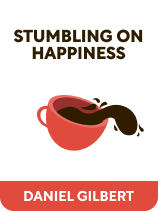

This article is an excerpt from the Shortform book guide to "Stumbling on Happiness" by Daniel Gilbert. Shortform has the world's best summaries and analyses of books you should be reading.
Like this article? Sign up for a free trial here .
Do you avoid making risky decisions in life? Are you afraid of living with regret?
As it turns out, people often assume that they’ll regret making risky decisions when, in reality, they have more regret when they don’t make those decisions. What you think is the “safe option” is probably the choice that’s going to make you the least happy.
Here’s why you should take risks in your life if you want to be happy.
You Anticipate Regretting the Wrong Choice
According to Daniel Gilbert in Stumbling on Happiness, one type of poor choice about the future happens because you misjudge how much regret you’ll feel in the future and over what choice. Specifically, you mistakenly think you’ll regret a bold, risky decision and that you won’t regret a safe decision. Because you want to avoid the pain of regret, you often opt for the safe decision. In reality, you’re more likely to regret a safe decision than a bold one, claims Gilbert.
(Shortform note: Gilbert presents regret as a negative feeling to avoid. But in The Paradox of Choice, Barry Schwartz argues that you could see regret as fulfilling several positive functions: The threat of regret causes you to seriously consider decisions, rather than making snap choices. Regret in the wake of a bad decision is also a learning tool, he writes, because it tells you how to behave better moving forward. Finally, when you regret something, you’re more likely to fix the situation or make amends with anyone you’ve harmed.)
This error in reasoning occurs, argues Gilbert, because we think that if a big, risky decision goes wrong, we’ll feel terrible due to all that we’ve staked and lost. But this isn’t true: As we discussed in Part 3.2, your brain protects you from adversity following big mistakes by finding meaning in what happened and convincing you it happened for a reason. So, even if the risk goes wrong, you won’t feel bad. You’re more likely to feel bad if a safe bet goes wrong, as it’ll likely lead to only minor inconvenience, and as discussed, your brain can’t protect you from that.
Let’s look at an example to illustrate this idea: You’re deciding between starting your own business and staying at your current job that you don’t enjoy. Starting your own business is the riskier decision, and you vividly imagine the regret you’ll feel if you fail. Meanwhile, staying at your current job elicits less fear of regret because the risk is smaller. To avoid regret, you therefore opt to stay at your current job.
This is, from a happiness-maximization perspective, the wrong decision. Even if your risky choice to start your own business fails and leads to adversity, your automatic happiness-protecting response will kick in: You’ll derive meaning and learning from the experience, and you won’t regret it. If you stay in your current job, on the other hand, you’ll never be unhappy enough to trigger that happiness-protecting response. You’ll therefore languish in a state of moderate unhappiness, which you’ll regret.
| Consciously Protect Your Happiness One way to overcome the harmful attitude toward regret Gilbert describes here and to increase your comfort with making risky choices is to consciously use the happiness-protecting strategy your mind implements subconsciously. When you force yourself to see potentially devastating outcomes of your risky choices as learning experiences, you won’t fear regretting those choices as much and will be emboldened to make them. Tony Robbins argues this point in Awaken the Giant Within. He writes that many people passively let life carry them along—we can see this as analogous to constantly making safe, regret-minimizing choices that maintain your status quo. To seize control of your life and make the bold choices required to better it, Robbins writes that you should consciously view bad decisions as learning experiences that improve your sense of judgment in the future. |

———End of Preview———
Like what you just read? Read the rest of the world's best book summary and analysis of Daniel Gilbert's "Stumbling on Happiness" at Shortform .
Here's what you'll find in our full Stumbling on Happiness summary :
- A look at how your brain fabricates your reality leading you to make bad decisions
- The six specific types of bad choices people make
- How to improve your decision-making in the future






